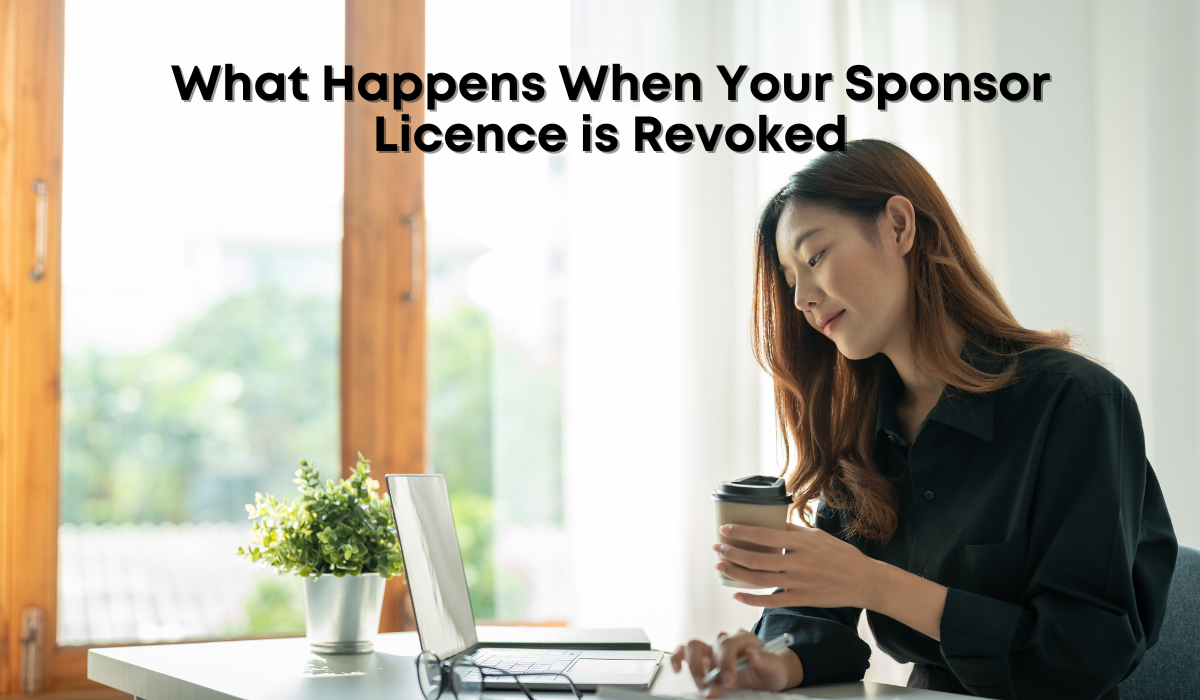What is a Sponsor Licence, and Why Does it Matter?
A sponsor licence is an essential approval from the UK Home Office that allows businesses to employ skilled workers from outside the UK. In the context of ongoing labour shortages, this licence has become operationally critical for many employers across industries.
Securing a sponsor licence is a rigorous process, but retaining it is an ongoing challenge. The Home Office holds sponsors to strict compliance standards, and any deviation from these can result in punitive actions, including licence suspension or revocation.
When revoked, the sponsor loses the ability to employ sponsored workers across all visa categories. This means existing employees may have their visas curtailed, forcing them to find alternative sponsors or leave the UK. Moreover, the business typically faces a 12-month “cooling-off period” before it can reapply, during which it must address compliance failings.
Why Are Sponsor Licences Revoked?
Revocation is among the most severe actions the Home Office can take, usually reserved for cases of significant non-compliance. Common triggers include:
- Non-Compliance with Regulations
Sponsors must maintain accurate records, conduct compliant right-to-work checks, and adhere to sponsorship duties. Failures in these areas can lead to revocation. - Inadequate Record-Keeping
Poor documentation, particularly concerning sponsored employees’ roles, salaries, and right-to-work status, is a frequent cause of enforcement action. - Breaches of Sponsorship Duties
Employing a migrant worker in a role inconsistent with their visa conditions or failing to report significant changes in circumstances can result in punitive measures. - Fraud or Misrepresentation
Providing false information during the licence application or in the Sponsorship Management System (SMS) is a serious breach that can lead to immediate revocation. - Failure to Engage with the Home Office
Ignoring Home Office communications or failing to implement required action plans after a suspension often leads to revocation.
Sponsor Licence Suspension vs. Revocation: Key Differences
It is essential to distinguish between licence suspension and revocation:
| Aspect | Suspension | Revocation |
| Definition | Temporary measure during investigation | Permanent removal of sponsorship privileges |
| Operations | Can’t sponsor new workers but can retain existing ones | Cannot sponsor any workers; all privileges revoked |
| Reversible? | Yes, if compliance issues are resolved | No, requires reapplication after a cooling-off period |
| Impact on Employees | Limited, as current workers remain unaffected | High, as employees’ visas may be curtailed |
Consequences for Employers and Employees
For Employers
A revoked sponsor licence disrupts operations and damages a company’s reputation. Employers lose access to skilled international talent and may face financial losses as projects are delayed or abandoned. For industries reliant on global expertise, such as healthcare, engineering, or technology, these consequences can be devastating.
For Employees
Sponsored workers are particularly vulnerable. Visa curtailment typically gives them 60 days to secure alternative sponsorship or leave the UK. Recruits awaiting visa processing may have their applications cancelled, while those yet to travel to the UK will see their Certificates of Sponsorship invalidated.
Steps to Take After a Sponsor Licence Revocation
If your sponsor licence has been revoked, swift and strategic action is essential:
- Understand the Grounds for Revocation
Review the Home Office notification to identify the breaches cited. This forms the basis for any response or future compliance measures. - Seek Legal Advice
Immigration law specialists can help evaluate your options, whether pursuing a Judicial Review, addressing procedural errors, or reapplying after the cooling-off period. - Support Affected Employees
Open communication with sponsored workers is critical. Offer legal assistance and keep employees updated on efforts to address the issue. - Reapply for a Licence
If reapplication is the best course, use the cooling-off period to rectify compliance failings, implement robust processes, and ensure all procedures align with Home Office requirements.
Preventing Sponsor Licence Revocation
Prevention is always better than cure. To avoid the risk of losing your sponsor licence, consider the following measures:
- Regular Compliance Audits
Conduct biannual reviews of HR processes, right-to-work documentation, and reporting procedures to identify and address gaps. - Automate Record-Keeping
Invest in digital tools to track visa expiry dates, employee records, and key reporting deadlines, reducing the risk of human error. - Mandatory Staff Training
Ensure all relevant personnel, including HR and line managers, understand their sponsorship responsibilities. Regular refresher training should cover regulatory updates and best practices. - Engage Proactively with the Home Office
Maintain open lines of communication and act swiftly on any issues raised. Demonstrating a proactive approach can mitigate risks during audits or investigations.
Final Takes
A sponsor licence is a vital asset for UK employers navigating the complexities of the modern labour market. However, with this privilege comes the responsibility to maintain the highest standards of compliance.
Whether your business is facing revocation or seeking to prevent it, professional advice and robust compliance measures are essential. By addressing weaknesses and fostering a culture of accountability, employers can safeguard their ability to sponsor skilled workers and continue contributing to the UK economy.
For expert guidance on sponsor licence compliance, suspension, or revocation, contact our immigration specialists today.
Get in touch: For a comprehensive understanding of your options or queries on UK immigration matters, contact GigaLegal Solicitors at 02074067654 or click here to book a no-obligation consultation with an immigration expert.


